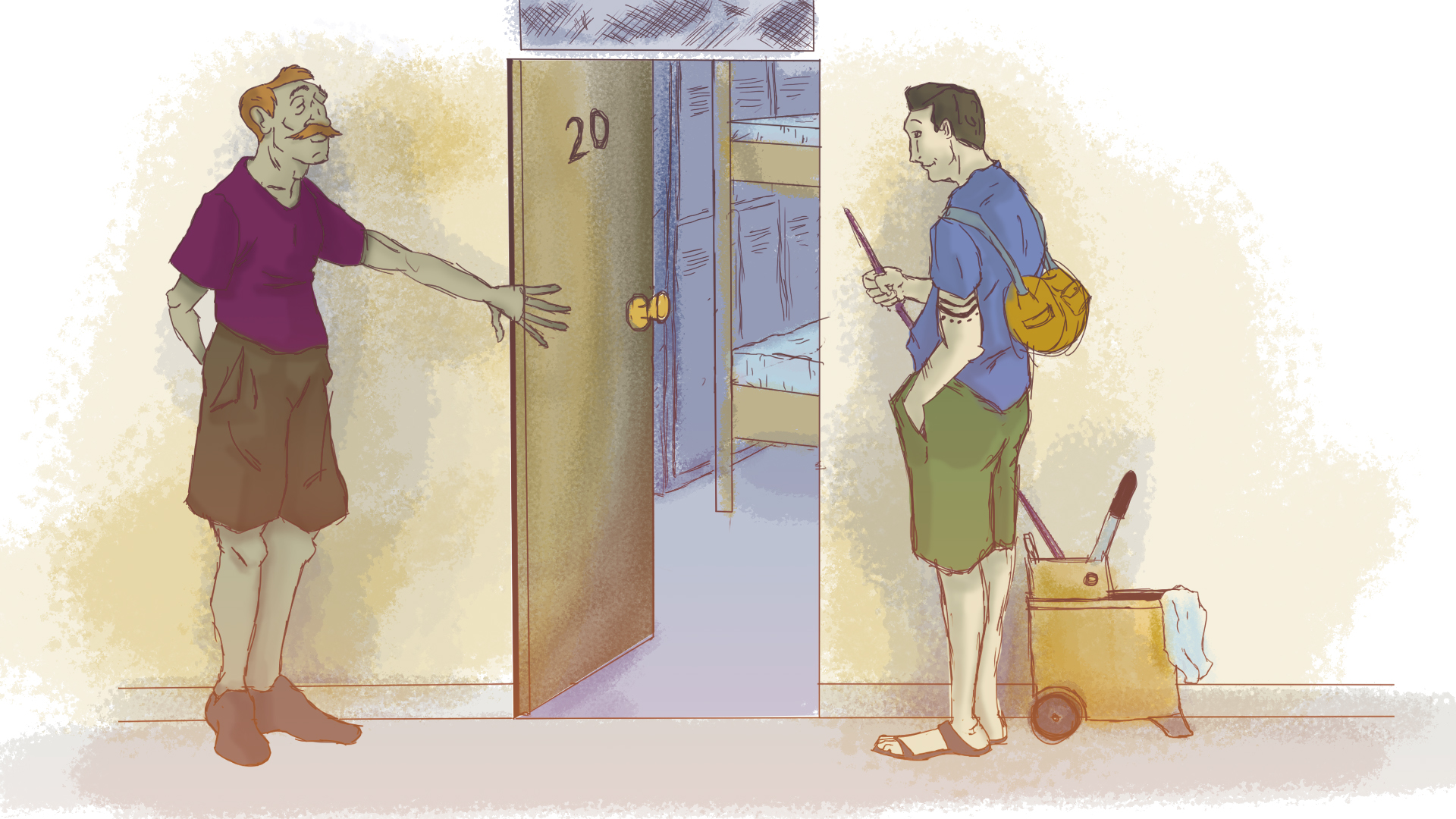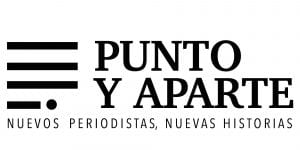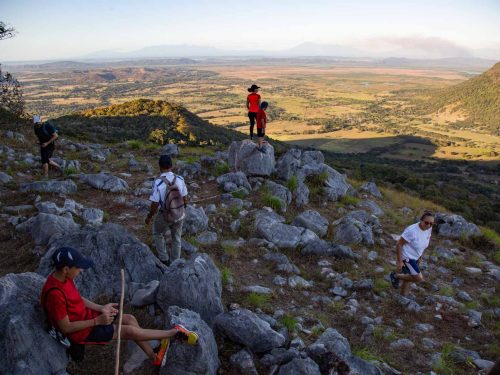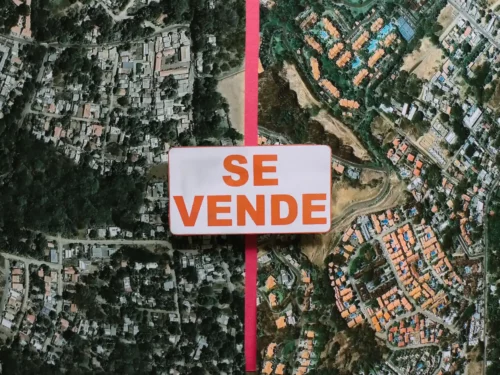
Maria Bonilla decided to leave Guanacaste after unsuccessfully looking for a job for a year around Potrero, Conchal, Panama, and Brasilito beaches.
“In Guanacaste, tourism business owners prefer to hire foreigners informally to save on insurance and employment guarantee,” says Bonilla.
No institution in the country has the capacity to see what Bonilla saw. Neither the Costa Rican Tourism Institute (ICT), the National Institute of Statistics and Censuses (INEC) nor the Ministry of Labor and Social Security (MTSS) have informal work in tourism on their radars, and they are even less aware of what these foreigners suffer.
Before COVID-19 arrived in our country, tourism produced 19% of the jobs in Guanacaste, according to first-quarter data for 2020 from INEC. The pandemic, as expected, paralyzed the province’s main economic activity.
The National Chamber of Tourism (Canatur) calls it “zero season” and the Costa Rican Chamber of Hotels (CCH) stated in a press release that “the hotel industry cannot withstand more” and foresees complete closures of businesses and massive layoffs in the near future.
Statistics aren’t encouraging either: 16% of hotels and restaurants reduced their staff and 52% of workers had their contracts temporarily suspended during COVID-19, according to the Central Bank of Costa Rica’s Performance and Business Outlook Survey carried out in April 2020.
The Voice of Guanacaste, together with the Punto y Aparte Journalism Association, went to Tamarindo in December to look for testimonies from foreigners who work informally within the tourism industry.
We chose Tamarindo because it is the Tourism Development Center (CDT- Centro de Desarrollo Turístico) in Guanacaste with the most lodging businesses (115) and rooms (2010) registered with ICT.
The people we interviewed agreed to tell us about their experiences under the condition of not revealing their identities so as not to put their jobs at risk. Some interviews were conducted before COVID-19, but we updated the research because we believe that it is important to understand the labor conditions of workers within our province’s main economic industry.
Volunteer or job insecurity?

A vicious cycle: There is unfair competition between businesses that have “volunteers” and those that formally hire their workers, emphasizes labor lawyer Fernando Bolaños.
Alejandro* is Venezuelan and has been working in Tamarindo for seven months. He came to the country as a tourist and a friend told him about a hostel that was looking for “volunteers.”
By “volunteers,” his friend referred to working as a receptionist between 14 and 16 hours a week, without salary, without social security or any type of employment guarantee, and without the need for a work permit; in exchange for lodging only and a 10% commission on the tours that he managed to sell.
Before COVID-19, the hostel had five workers under these terms, but four of them returned to their countries when the Ministry of Health announced the closure of beaches in March of this year.
Although the hostel is currently closed, Alejandro stayed on and was put in charge of cleaning the place. He is living on his savings while waiting for tourism to revive.
Miguel* has lived in Tamarindo for a year and a half and, like Alejandro, he is in Costa Rica as a tourist.
It has gone well for me in volunteering. But there are instances of cases. A friend was put to work shoveling and painting the hostel in exchange for just space for her to set up a tent,” he related.
According to Miguel, most hostels in the area had foreigners working in exchange for accommodations. He identifies two profiles of workers: tourists who are traveling and want to save the cost of housing, and those who came to Costa Rica out of necessity and cannot afford to pay the rent for an apartment.
The latter must look for other jobs to pay for their food and personal expenses.
That was his case. Miguel had up to four informal jobs at one time. In the mornings, he took care of the hostel. In the afternoons, he worked in a small restaurant. In the evenings, he tended bar, and when he ended his shift there, he sold hamburgers near tourist sites.
The group of workers who came to Guanacaste in search of employment is the one who is suffering the most from the current tourism situation, according to Ernest Cañada, a researcher who specializes in tourism and coordinator of the Alba Sud responsible tourism blog.
Both reveal employers’ cost-cutting strategies… The tourist who is traveling is going to return to his country in some way. The problem is going to be with the economic migrant who is the one who is going to look bad and is going to increase the country’s [unemployment] problems,” explained Cañada.
To Jimmy Alvarez, professor of labor law at the National Technical University (UTN), this dynamic is a modern way to mask job insecurity.
In addition, Alvarez considers providing accommodation in exchange for work to be equivalent to payment in kind (when the main compensation is not money), and this makes it illegal.
“There is a payment in kind, but there must always be a compensation of money. A worker can have access to food [or lodging] as part of the employment relationship, but the main income must be monetary,” explained Alvarez based on article 165 of the Labor Code.
This is a common practice in Guanacaste and in different destinations around the world. There are applications such as Workaway and Worldpackers that offer a catalog of options for tourists to work under this modality.
During the pandemic, these applications remain active even though Costa Rica’s borders are currently closed.
The Voice of Guanacaste reviewed Workaway and found 70 options at different beaches such as Tamarindo, Carrillo, El Coco, San Juanillo, Coyote, and Samara, among others.
A hostel in Tamarindo indicates in its profile that, due to COVID-19, they only accept volunteers who are in Costa Rican territory but states that it will accept foreigners again when Costa Rica reopens its borders.
Another option that appears is a hostel in Samara that is looking for a miscellaneous construction manager to work between four and five hours a day, five days a week. In exchange, they offer a bed, breakfast, and dinner.
Javier De Mezerville is a Costa Rican who owns two hotels in Playa Grande. Both are temporarily closed due to the pandemic, but according to De Mezerville, he will recruit volunteers again once tourism picks up in the area.
Having volunteers has been a win-win for us. They are a great help because as small hotels, you can’t be hiring employees for all of the positions that are needed… I would say that hotels don’t depend on volunteerism, but they do help quite a bit,” De Mezerville commented.
For him, having volunteers has several advantages: they improve customer service because they are generally bilingual, they increase visits because they recommend the hotel to their acquaintances and they help them get through the low seasons when the number of clients decreases.
Labor lawyer Fernando Bolaños affirms that these forms of work, although not regulated, also put the employer at risk.
“If they want to, [the volunteers] can file a lawsuit. In that case, it is not going to matter that the employer says that the person was a volunteer, that there was an agreement to work in exchange for housing… that is not going to count for anything. If several volunteers agree and file a lawsuit together, the issue can become big and serious for the employer,” Bolaños explained.
Beyond volunteering

Vulnerability increases for those who migrate in search of work in informal jobs and go under the radar of authorities.
Jessica* is Nicaraguan and fled to Costa Rica after realizing that she was being persecuted by the government of President Daniel Ortega.
She got a full-time job as a hostess at a restaurant in Tamarindo. She worked there for several months but never signed a contract. She did not get paid minimum wage and was unable to go to social security when she became ill.
I got sick three times and what I had to do was use Twitter to write to doctors who are also in exile so they could guide me and tell me what I could take and, hey, work sick,” she related.
“When I said something, the boss told me that I couldn’t claim anything because I was illegal,” she added.
Although Jessica is Nicaraguan, it is also common in beach areas to see workers who are Italian, American, Uruguayan, Venezuelan, Argentinean…
Rodrigo* is Costa Rican and has been working for a year and a half as a communications representative in a hotel. Since arriving in Tamarindo, he has noticed that the places where he went were tended by foreigners who “work there and soon leave.”
“I have had contact with people who come in high season and work without a work permit. This dynamic works for both parties in quotation marks: the one who works gets some money to be able to continue traveling, and the company takes advantage and does not pay insurance or guarantees,” said Rodrigo.
It also caught Rodrigo’s attention that “these recruitments are super sexist because they are generally sweet-tempered and pretty foreigners,” he said.
The vulnerability of the economic development model that Guanacaste is betting on is exposed with the pandemic, researcher Cañada pointed out.
It is a suicidal development in which the country has everything to lose: allowing such an important industry for a country, such as tourism, to be based on informal work, poor employment quality and atypical forms of employment means that the bases on which you are gambling your economic development are very weak,” he commented.
The lawyer Bolaños thinks that after the coronavirus, these hiring dynamics will increase the employment crisis that tourism is going through.
“It seems serious to me that, in the face of the unemployment crisis that COVID-19 is going to leave us, we also have to put up with an informal job hiring scheme in which people will come to offer their labor in inferior conditions. This can exacerbate unemployment,” said Bolaños.
Both Bolaños and Cañada agree that it is important that these informal hirings be attended to because, otherwise, it would promote unfair competition with businesses that want to have their workers under a formal arrangement.
Off the Radar for Authorities
Miguel ventures to calculate that before COVID-19, about 70% of the workers in Tamarindo were foreigners who were there informally. Rodrigo calculates a similar figure and considers it to be 60%.
It is impossible to know if they are right because the informal work dynamics in tourism are off the radar for the General Directorate of Migration and Foreign Affairs, MTSS and ICT.
Due to COVID-19, ICT presented a roadmap to reactivate tourism. Among its pillars is the issue of job creation, but it does not address informal employment within the industry in any of its objectives.
ICT’s director of tourism development, Rodolfo Lizano, explained that it is difficult for them to know the labor dynamics because, in Costa Rica, lodging sites are not required to register with the institution.
“Apart from the places that register voluntarily … we have no way of knowing either how many there are or where they are. This creates a complication when estimating employment in these companies,” explained Lizano, who emphasized that MTSS and the General Directorate of Immigration and Foreign Affairs are the ones responsible for regulating employment issues.
MTSS repeatedly indicated to this medium that there is no information on such a specific population as foreigners hired informally within the tourism sector.
The Immigration Police’s regional manager, Johanna Rodriguez, admits that the institution can do little to deal with informal employment because, according to her, triple the number of police officers would be needed.
[Currently] the same people that I have at checkpoints are the ones that have to file complaints and follow up on inspections. It was easy for you [as a journalist to find cases] because you are not a police officer. When a group of police is deployed, there are irresponsible people who take it upon themselves to warn [other areas]; sometimes it’s even the police themselves,” Rodriguez said.
The businesses and workers themselves have WhatsApp groups to go unnoticed and evade the presence of MTSS and Immigration, according to Maria Bonilla and several foreigners who preferred to remain anonymous.
“ I even saw vans that took workers to Nicaragua because their tourist visa was expiring. What they do is they spend 15 minutes there and return to the country with a renewed visa to continue working informally,” Bonilla related.
* The name has been changed at the request of the person interviewed.
***







Comments